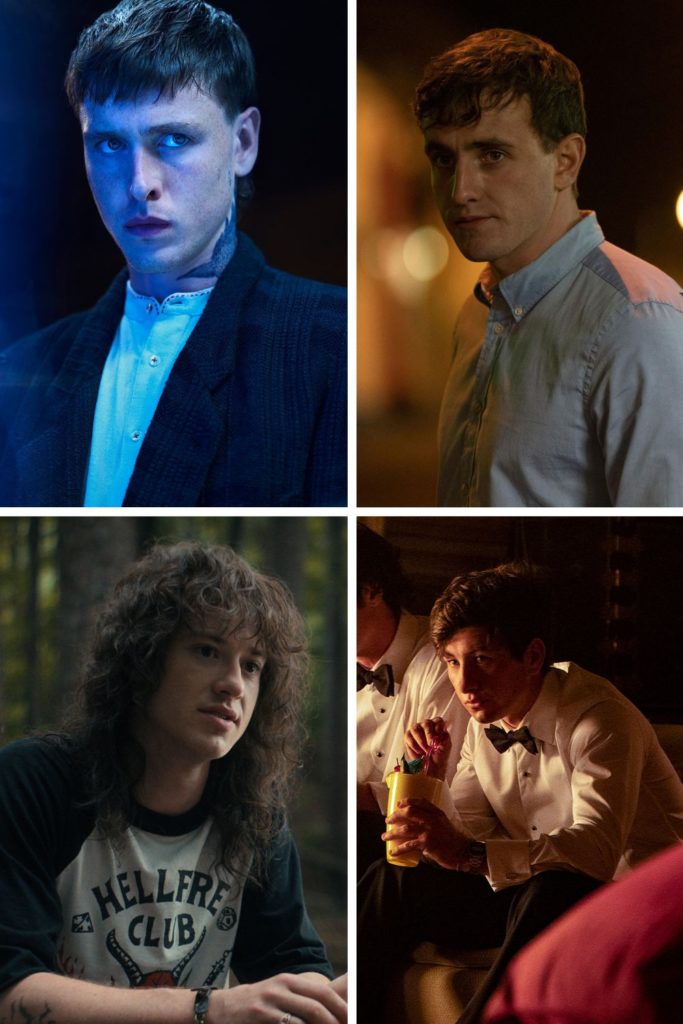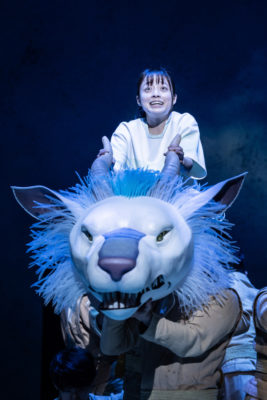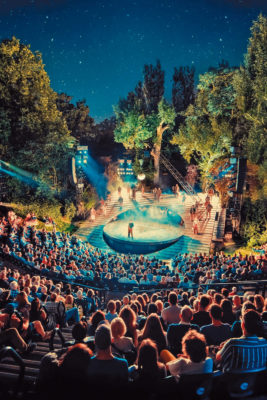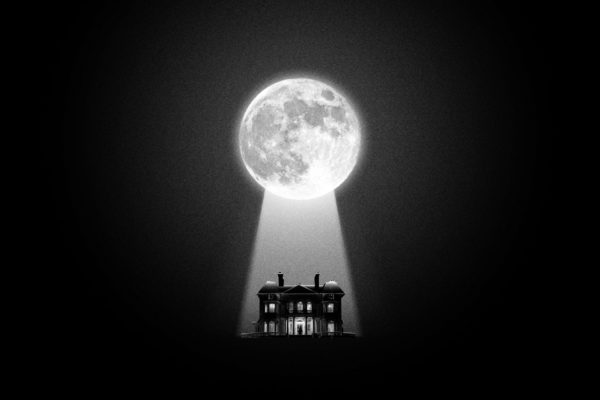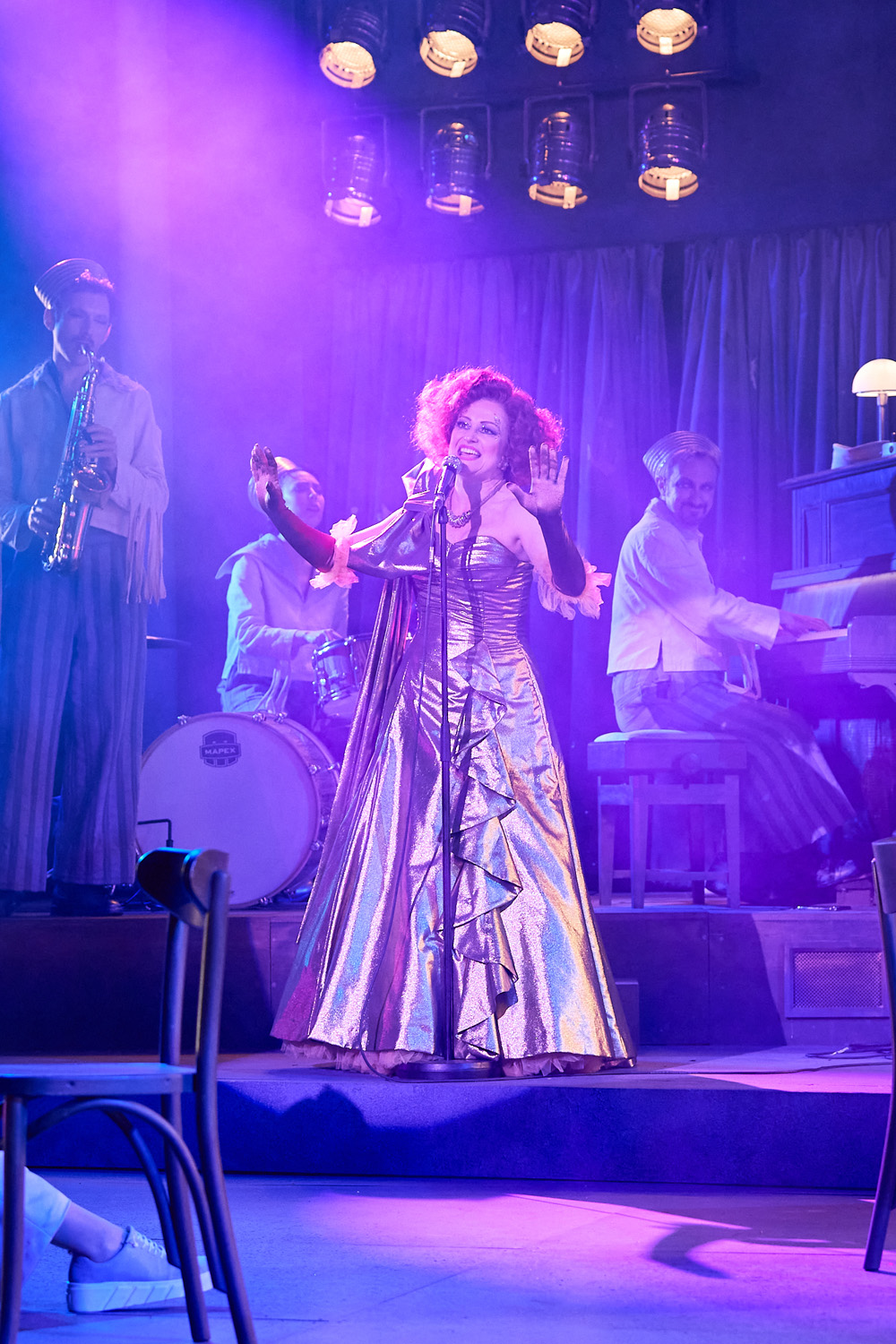
Twelfth Night At Regent’s Park Open Air Theatre: An Electric Rendition Of Shakespeare’s Best Comedy – Review
By
11 months ago
Owen Horsley’s queer take on Shakespeare’s Twelfth Night isn’t a modern reimagining – it’s the truth
The sun is back and with it London’s best open air theatre nestled in the heart of Regent’s Park. Currently playing: Twelfth Night. Olivia Emily checks out the raucous delight.
Review: Shakespeare’s Twelfth Night at Regent’s Park Open Air Theatre
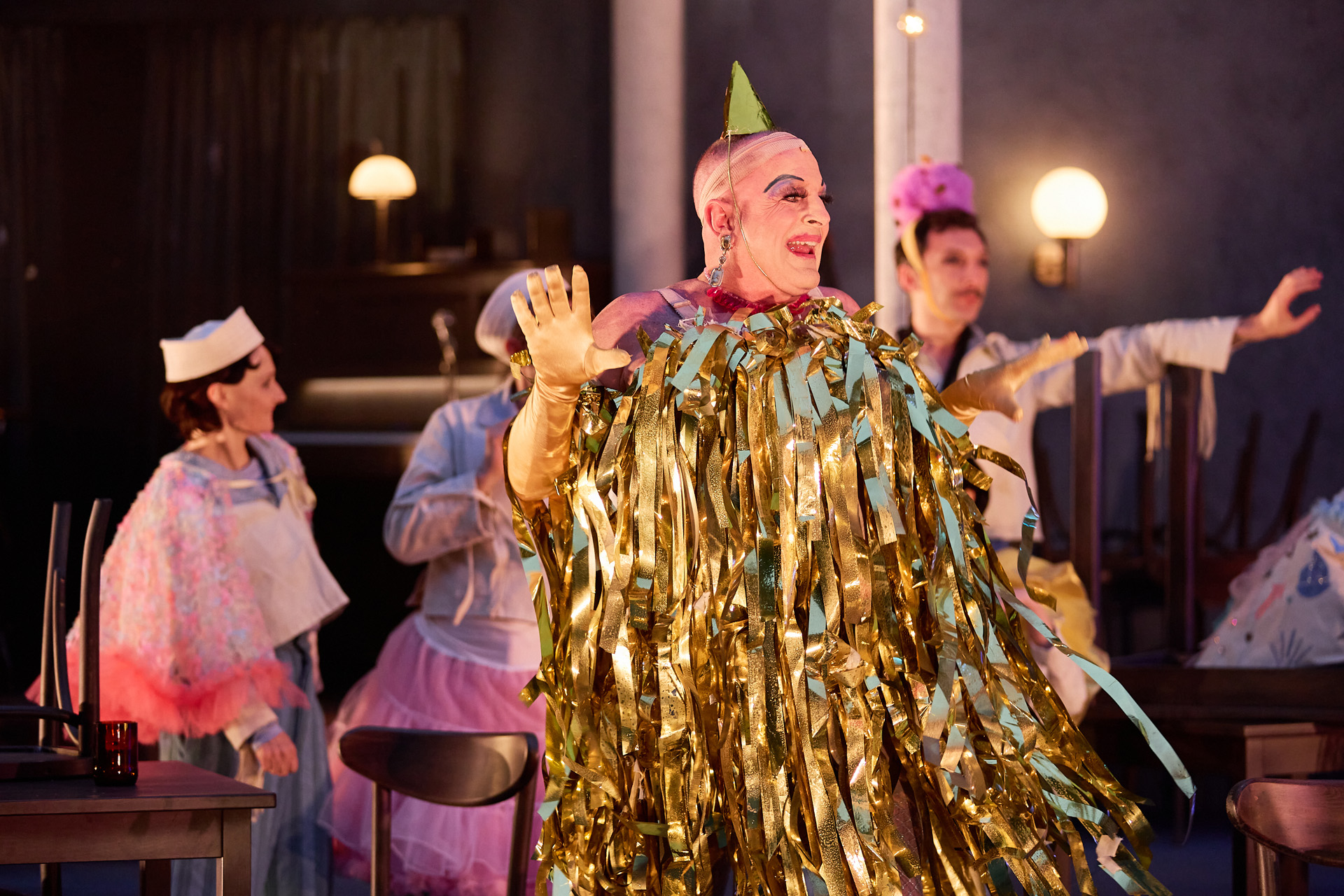
Uncle Toby Belch is a drag queen as well as a drunkard, played by Michael Matus. © Richard Lakos
As the sun burns London’s impenetrable cloud cover into mere whisps and whispers across a cerulean sky, we wash up on Illyria’s shores with shipwrecked Viola (Evelyn Miller) – lost, alone, grieving her almost certainly dead twin brother, Sebastian (Andro Cowperthwaite). How to protect oneself in an unfamiliar land? The answer is, sadly, the same today as it was back then: dress as a man.
Thus begins Shakespeare’s timeless – and, arguably, best – comedy, Twelfth Night, or What You Will, first written around 1601/1602 and featuring more music, confusion and mistaken identity than ever before. And, in director Owen Horsley’s rendition at Regent’s Park, that music, combined with drag makeup and glittering dresses, elevates the action from amusing to electrifying.
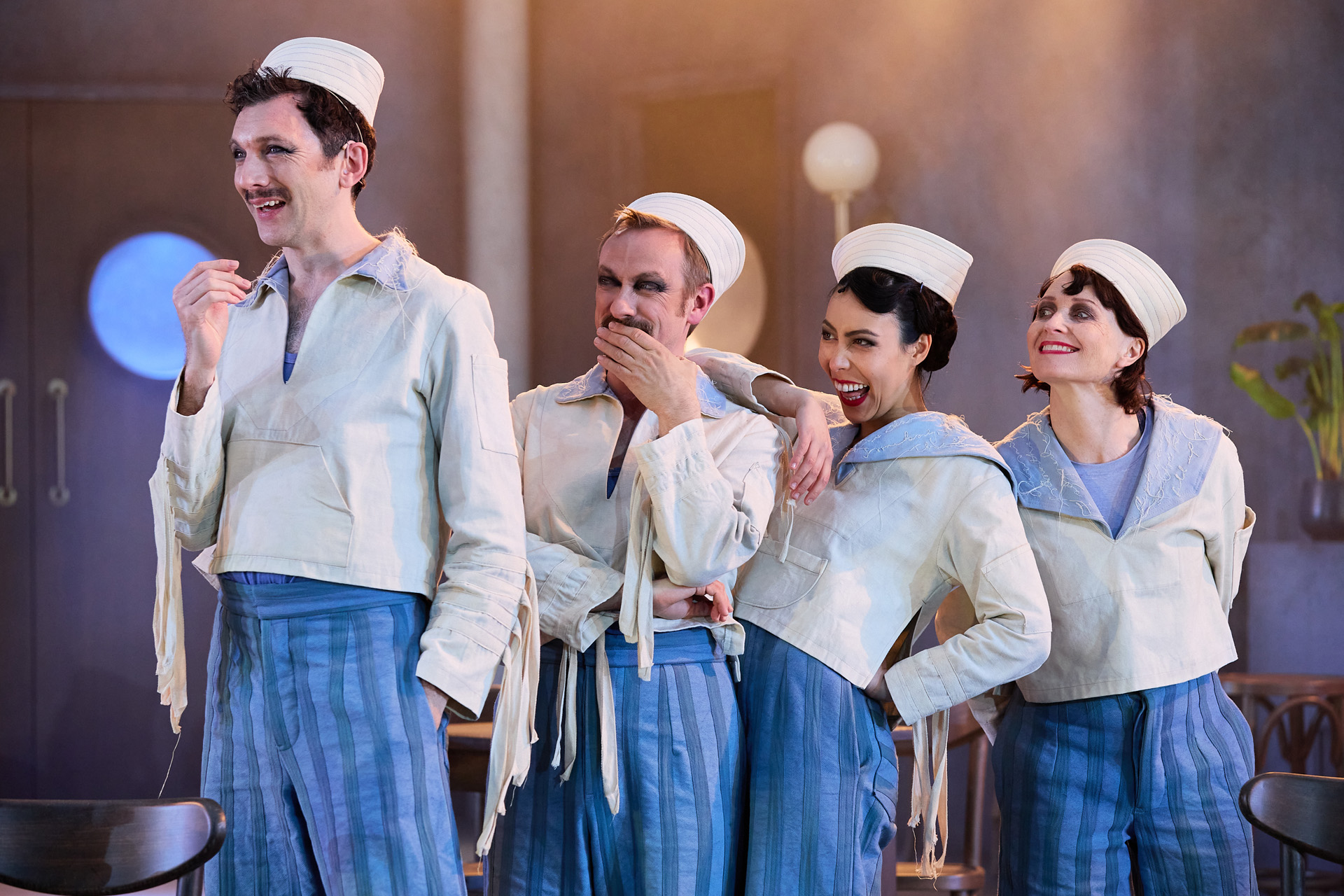
Olivia’s bar keepers (Harry Waller, Jon Trenchard, Sally Cheng & Katherine Toy) dress as mariners in matching lace-up trousers, donning sailor hats and striking eye makeup. © Richard Lakos
More than 90 years ago, Twelfth Night was the first play staged at Regent’s Park Open Air Theatre, which was then a makeshift, grass-covered stage flanked by a crowd of deckchairs. That rendition transferred from the West End’s New Theatre (today the Noel Coward) to the park, and was so beloved it returned for an encore the following summer. The theatre became a permanent fixture known as the New Shakespeare Theatre, shedding its Bard-only skin in 2010, but keeping the master wordsmith close to its heart. Thanks to that, we have this vivid, electric performance of Twelfth Night to devour – plus The Enormous Crocodile (17 May–8 June), The Secret Garden (15 June–20 July) and Fiddler on the Roof (27 July–21 September).
Though obviously the oldest play in the roster, Twelfth Night is more relevant today than ever. In Horsley’s rendition, the perennial toying with gender and sexuality floats naturally to the surface: Olivia (mastered by the entrancing Anna Francolini) is a grieving bar owner with her name spelled in pink neon capitals looming over the stage; she is a diva-ish memory of Bette Davies and Julie Garland draped in glittering, swooping dresses and a black taffeta veil stretching metres behind her. Her ever-melodramatic grief becomes camp in this queer(er) reimagining, in which Olivia’s bar keepers (who double as Orsino’s court, and generally float, unmoored, across the stage) dress as mariners in matching lace-up trousers, donning sailor hats and striking eye makeup. In the wake of the deaths of her father and brother, her inner circle – Malvolio (Richard Cant), Maria (Anita Reynolds), uncle Toby Belch (here a drag queen as well as a drunkard, played by Michael Matus) and jester Feste (Julie Legrand) – becomes her chosen family in a way that is so familiar to the queer community. She dresses extravagantly and her hair protrudes in vibrant orange curls from her head; she belts heartrending songs from the small stage in the corner of her bar, or serenades the colourful urn she waltzes across the stage with.
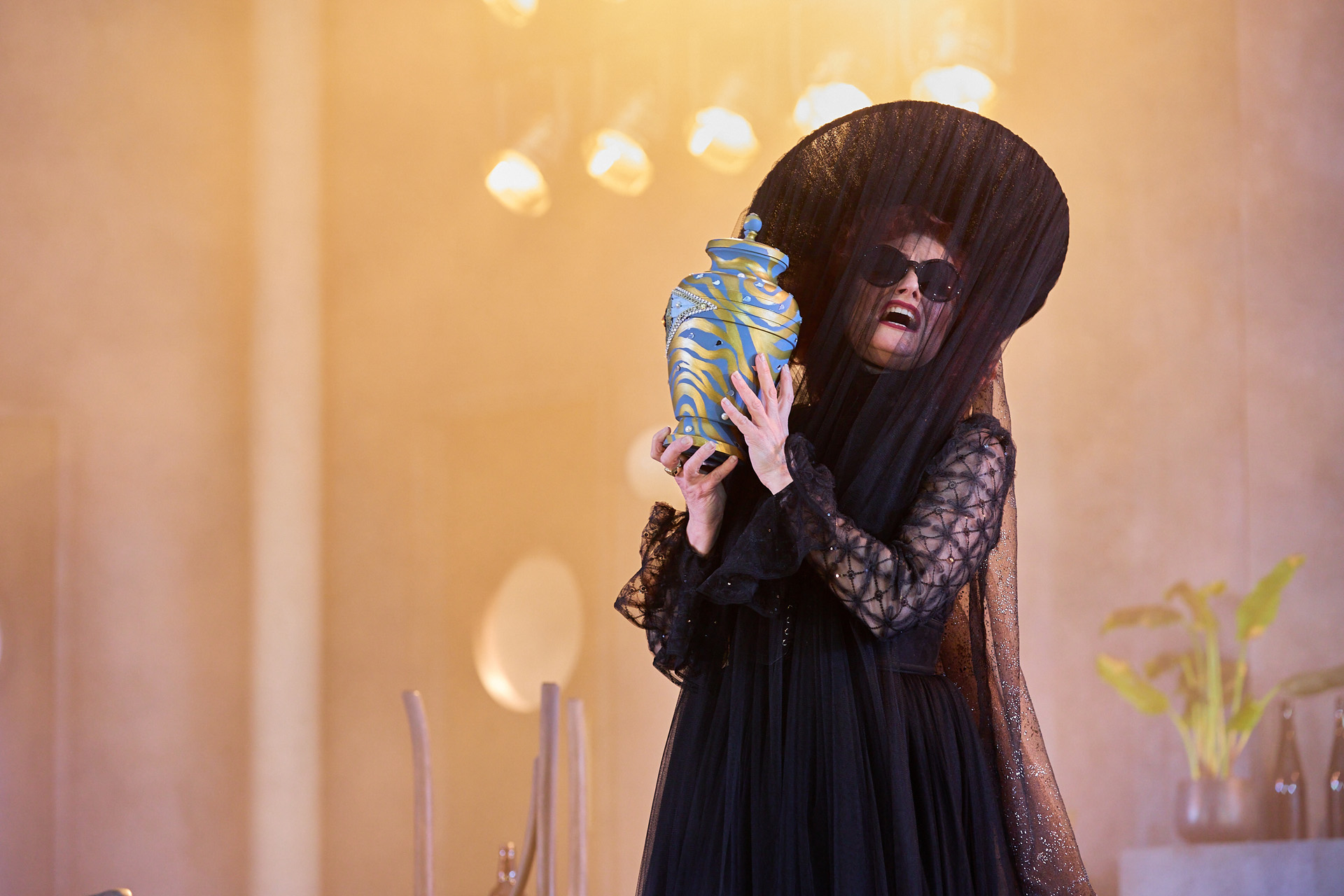
Olivia (Anna Francolini) serenades the colourful urn she waltzes across the stage with. © Richard Lakos.
Her comic timing shines when faced with the ever entrancing Viola-Olivia-Orsino love triangle (or love pentagon if we include Sebastian and Antonio [Nicholas Karimi]). The drama of Francolini’s Olivia is grounded by the easy confidence of Evelyn Miller’s Viola (known to Olivia, in her disguise, as Cesario). Miller bears a pleasing resemblance to Andro Cowperthwaite, her character’s twin Sebastian, with their sailor hats and tufts of curly hair cascading over their foreheads, and both dance easily, lithely across the stage, in and out of each other’s places.
Through Horsley’s queer lens, the chemistry between Viola and Olivia is more palpable than that between Viola and Orsino (Raphael Bushay) who she, of course, ends up with. That said, Bushay as Orsino portrays an adept balance between broad shouldered manly-man entranced by and committed to grieving Olivia, and conflicted gentleman questioning his sexuality in the face of inexplicably feminine Cesario.
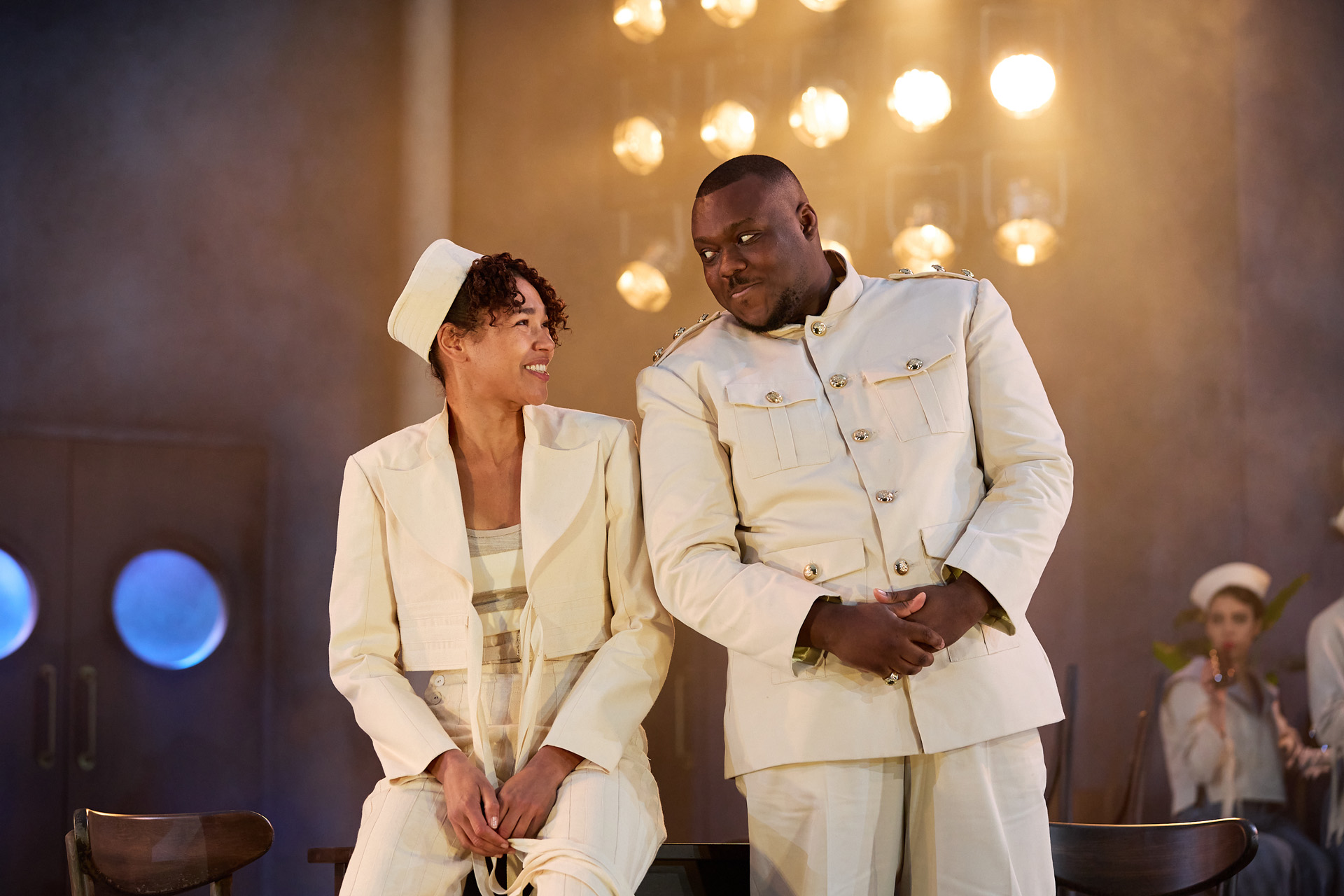
Raphael Bushay (right) as Orsino portrays an adept balance between broad shouldered manly-man and conflicted gentleman questioning his sexuality in the face of inexplicably feminine Cesario (Evelyn Miller; left). © Richard Lakos.
All of this is lifted with comedic interlude by the pleasing timing of Matthew Spencer as Andrew Aguecheek and the soft spoken Richard Cant as beloved Malvolio. In many productions, Malvolio’s hilarious, canary yellow side plot often takes an unsettling and jarringly darker turn towards play’s end, but Horsley keeps it jovial enough to keep the tone on track, aided by Cant and Michael Matus’ rendition of Toby Belch: drunk, witty, stern, but loving in the end.
But Horsley’s best decision is to stage Sebastian and Antonio’s queer relationship as it appears on the page: stark, unignorable. ‘We still live with a very post-Victorian view of sexuality which has really affected the way previous productions staged that relationship,’ he says. ‘Like, “oh, it’s implied that Antonio and Sebastian are lovers.” It’s not implied!’ We end with Olivia alone in her bar – elbows on the table, shoulders hunched under the weight of grief and lost love, name still up in lights, and the melancholic piano beginning to play the comedy’s final song ‘The Wind and the Rain’. She is slowly joined by the chosen family we begin with, not hammered into a false relationship with Sebastian, who returns to Antonio; this is refreshing and liberating for both parties, not to mention seriously moving.
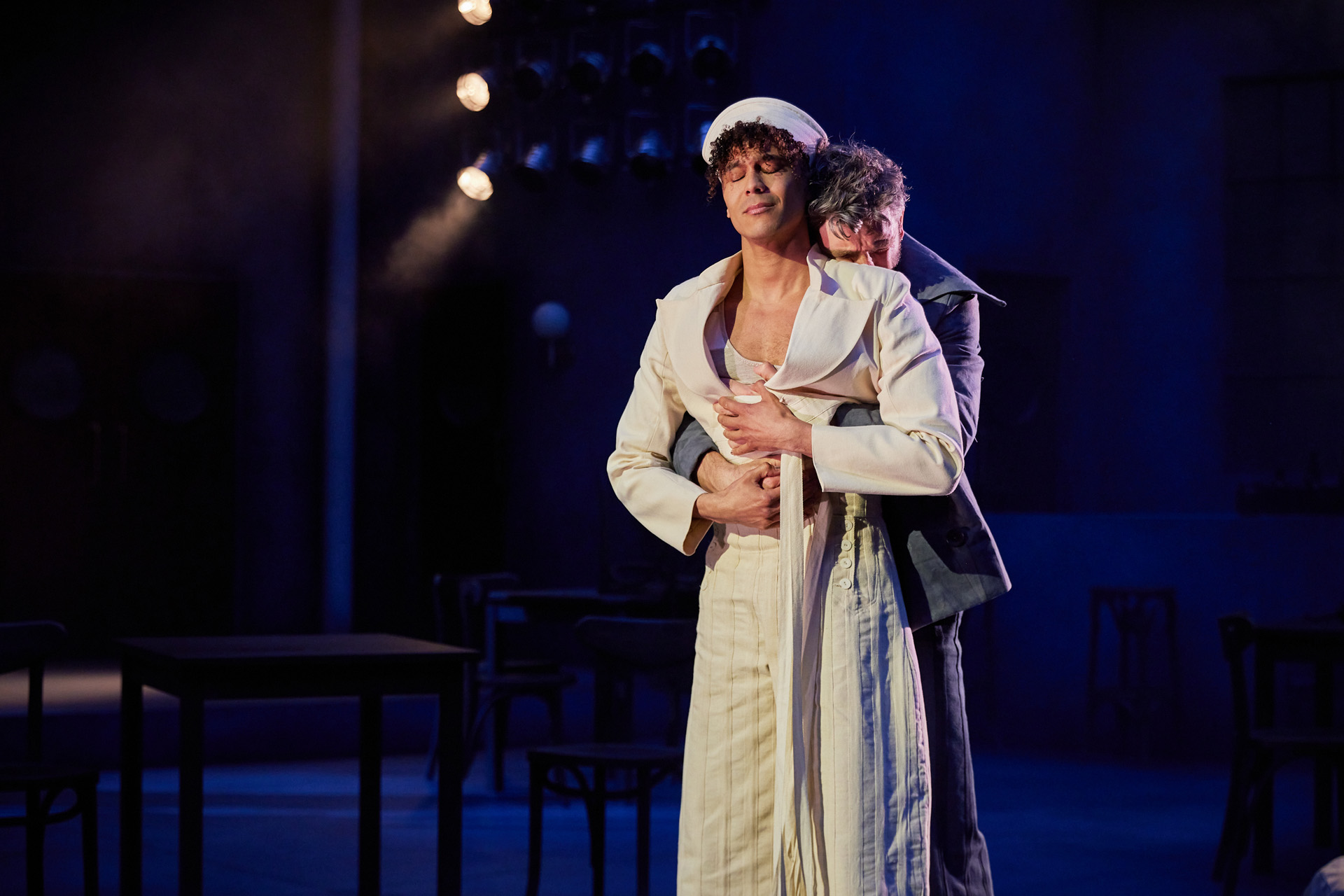
Director Horsley’s best decision is to stage Sebastian (Andro Cowperthwaite; left) and Antonio’s (Nicholas Karimi; right) queer relationship as it appears on the page: stark, unignorable. © Richard Lakos
As Horsley says: ‘For me, you must meet the play halfway. You have to ensure you don’t discard the material energy of the play when you’re approaching it in a new way. The good thing is that most of the plays, especially this one, have a queer energy already.’ And that queer energy, channelled so perfectly here, is delightful, intoxicating, exhilarating. Catch it while you can.
Twelfth Night plays at Regent’s Park Open Air Theatre until Saturday 8 June 2024. openairtheatre.com



